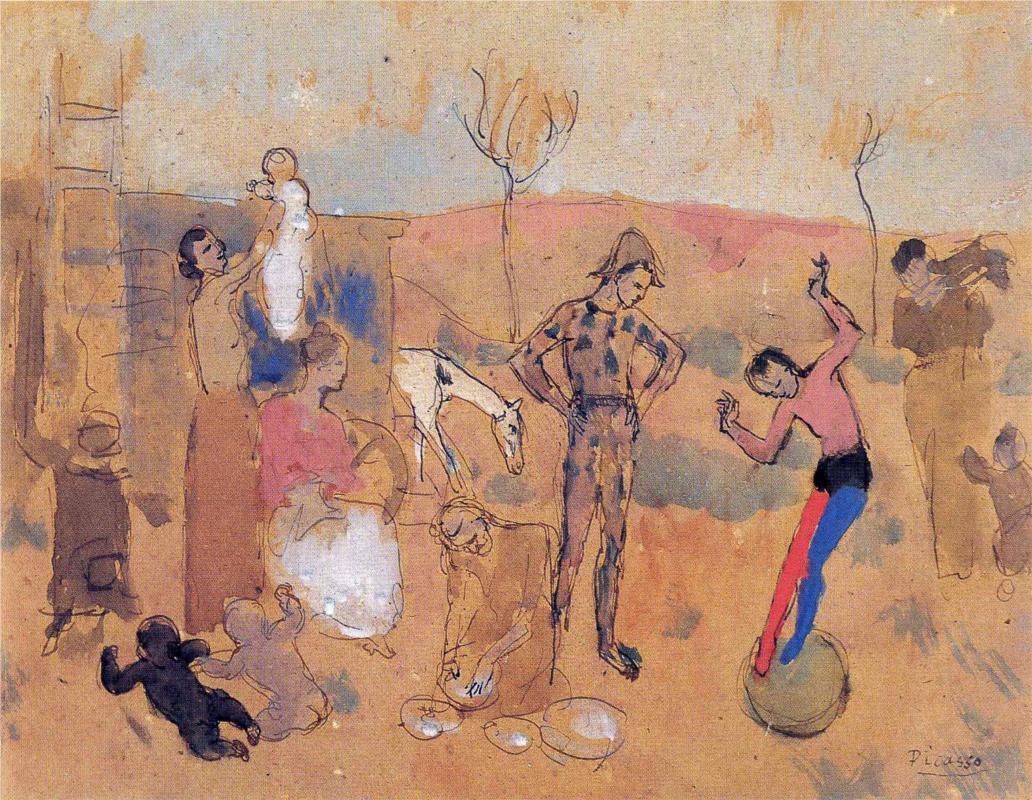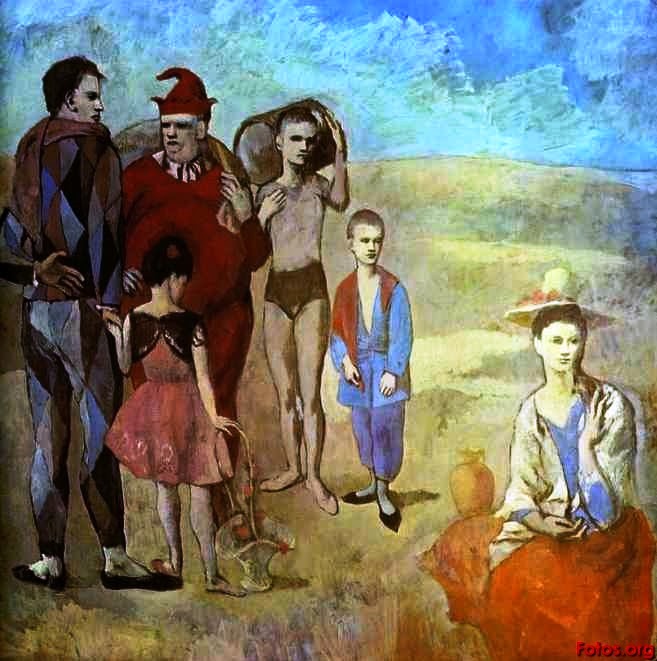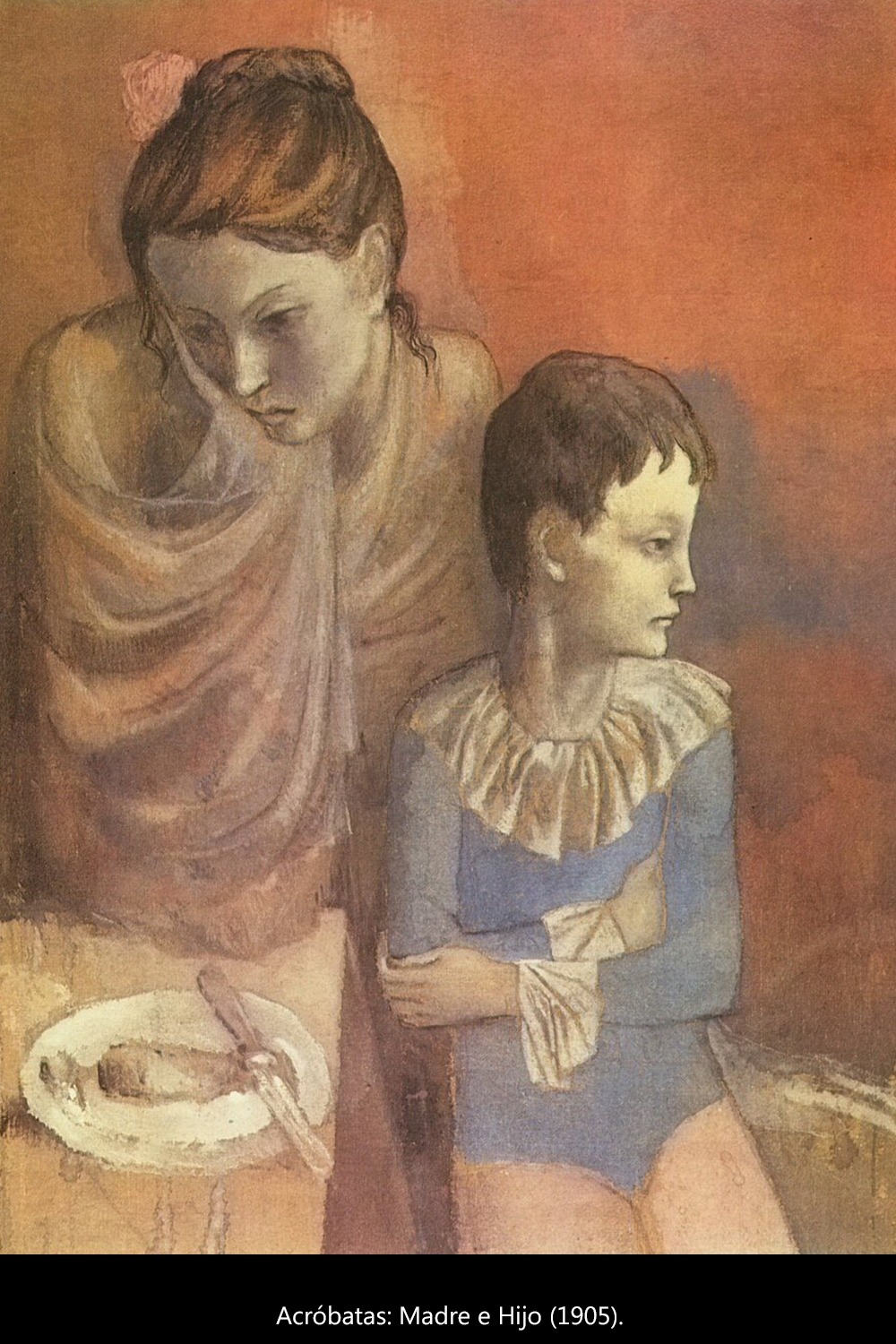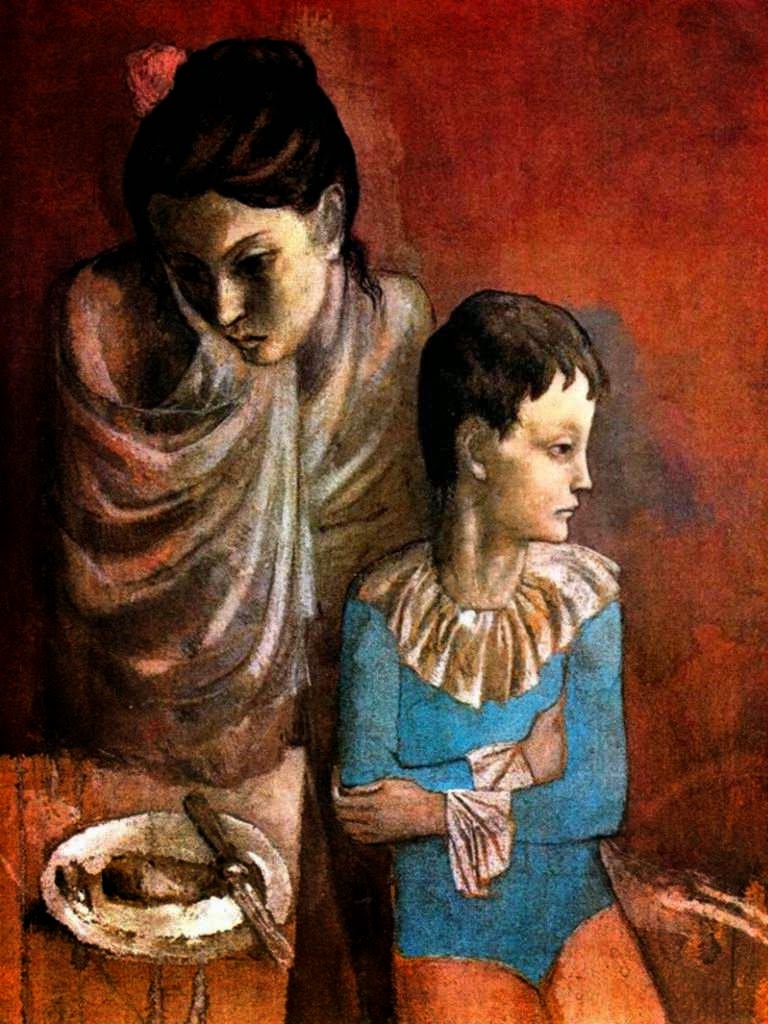
Picasso precubista il Periodo Rosa RestaurArs
Conócelos más. Picasso, del azul al rosa. La evolución hacia el cubismo. Picasso dijo "Sólo deja para mañana lo que estás dispuesto a dejar sin hacer al morir.". Esta máxima de vida deja claro que Picasso no sería un artista normal. Picasso ha sido considerado como el artista más creativo del SXX.

Pablo Picasso (18811973) Composition The Peasants 1906. Oil on canvas. 220 x 131 cm. The
Pablo Picasso, Spanish painter, sculptor, printmaker, ceramicist, and stage designer, one of the most-influential artists of the 20th century and the creator (with Georges Braque) of Cubism. Among his best-known works are Les Demoiselles d'Avignon (1909) and Guernica (1937).

PensArti Picasso e il Periodo rosa (19041906)
The Rose Period ( Spanish: Período rosa) comprises the works produced by Spanish painter Pablo Picasso between 1904 and 1906. It began when Picasso settled in Montmartre at the Bateau-Lavoir among bohemian poets and writers. Following his Blue Period - which depicted themes of poverty, loneliness, and despair in somber, blue tones.

El período rosa de Picasso. 3 minutos de arte
The artistic genius of Pablo Picasso (1881-1973) has impacted the development of modern and contemporary art with unparalleled magnitude. His prolific output includes over 20,000 paintings, prints, drawings, sculptures, ceramics, theater sets and costumes that convey myriad intellectual, political, social, and amorous messages.

ETAPAS ARTISTICAS DE PICASSO La Epoca Rosa
Il periodo rosa rappresenta un periodo importante nella vita e nelle opere dell'artista spagnolo Pablo Picasso e ha avuto un grande impatto sugli sviluppi dell' arte moderna. Cominciò nel 1904, quando Picasso si stabilì a Montmartre, nel Bateau-Lavoir, tra poeti e scrittori bohémien.

MI PINACOTECA Expresionismo. PABLO PICASSO. Período rosa
Etapa rosa (1905) A partir de 1905 y de manera gradual, el trabajo de Picasso evoluciona y vuelve a darse un nuevo cambio temático y cromático. Esta nueva etapa durará hasta 1906 y coincide con su estancia en París, allí conocerá a su primera compañera.

Bonjour, Picasso Período rosa
El período rosa (1904 a 1907) se caracteriza por una paleta de colores suaves, pasteles. Además de los colores, Picasso cambia los personajes marginales de su período azul por otros personajes marginales: los artistas del circo Medrano de Montmartre.

Picasso's Rose Period Detailed Information Photos Videos
The Rose Period is named after Picasso's heavy use of pink tones in his works from this period, from the French word for pink, which is rose . Picasso's third highest selling painting, Young Girl with a Flower Basket, and his fifth highest, Garçon à la pipe (Boy with a pipe) were both painted during the Rose Period.

EL PERÍODO ROSA DE PICASSO (1904/1907) DEL MODERNISMO AL CUBISMO Arte virtual, Picasso, Cubismo
Picasso's Rose Period represents an important epoch in the life and work of the Spanish artist Pablo Picasso and had a great impact on the developments of modern art. It began in 1904 at a time when Picasso settled in Montmartre at the Bateau-Lavoir among bohemian poets and writers.

El período rosa de Picasso. 3 minutos de arte
1904 - 1906: Rose Period. Pablo Picasso's Rose Period shows a deep contrast to his Blue Period, with a lighter tone and style. Picasso utilised orange and pink tones in this time of his career, and his art was much more 'alive'. He brought his subjects to live through the use of a warmer palette, which also increased the sense of intimacy.

Pablo Picassoperiodo rosa Pablo picasso paintings, Pablo picasso art, Picasso art
Picasso's Blue Period (and causal depression) lasted until 1904. At this time, less solemn subjects and a warmer color scheme began to pop up in his paintings. Rose Period (1904-1906) As Picasso transitioned to his Rose Period in 1904, he continued to depict figures in his characteristically painterly style. While blue tones are still present.

El período rosa de Picasso. 3 minutos de arte
Picasso's painting "Girl on a Ball" from his Rose Period, created in 1905, offers a stark departure from the somber and introspective works of his Blue Period, and it vividly illustrates the notable distinctions between these two phases of his artistry. One of the most evident differences is Picasso's transformation of his color palette.

MI PINACOTECA Expresionismo. PABLO PICASSO. Período rosa
Pablo Picasso, Boy with Pipe, 1905, from Picasso's Rose Period, via Widewalls. In this striking portrait, Picasso paints a young boy wearing a floral garland on his head, while holding a pipe in one hand. Flowers seem to spill from the boy's headdress onto the wall behind him, painted with the flat directness of Oriental art.

Pablo Picasso's Rose Period Picasso art, Picasso artwork, Picasso paintings
O período rosa de Picasso representa uma época importante na vida e obra do artista espanhol Pablo Picasso e teve um grande impacto nos desenvolvimentos da arte moderna. Tudo começou em 1904, quando Picasso se estabeleceu em Montmartre, no Bateau-Lavoir, entre poetas e escritores boêmios.

EL RINCÓN DE MIS DESVARÍOS EL PERÍODO ROSA DE PICASSO (1904/1907) DEL MODERNISMO AL CUBISMO
Nasce così il cosiddetto Periodo Rosa: stagione artistica con la quale Picasso sostituisce la universale desolazione degli anni precedenti con una più dolce e calda malinconia, abbandonando l'uso sistematico del blu e ritrovando una più ampia tavolozza di colori.

El período rosa de Picasso. 3 minutos de arte
African Period (1906-1909) For the three years that followed his Rose Period, Picasso found inspiration in Oceanic and African art. Known as his African Period, this phase retained the warmth of his Rose Period but conveyed a shift in both style and subject matter.Rather than produce figurative portrayals of performers, he began to depict abstracted, African mask-inspired depictions of all.